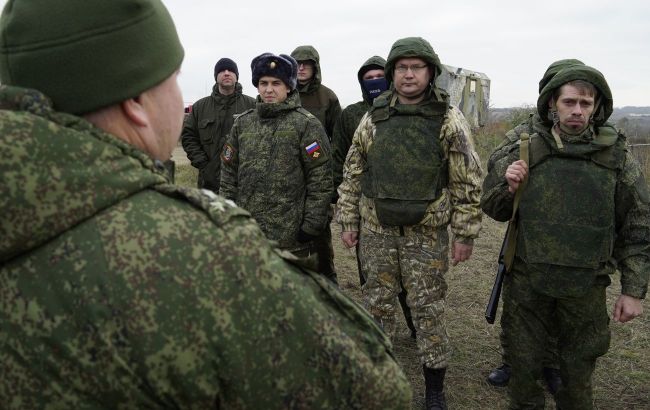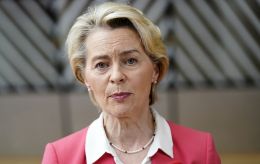Moscow efforts to expand military avoiding mobilization
 Photo: Moscow will hire contract workers instead of mobilization (Getty Images)
Photo: Moscow will hire contract workers instead of mobilization (Getty Images)
Moscow is preparing to recruit more contract soldiers, seeking to avoid, at least for now, another large-scale mobilization that could undermine public support for the war with Ukraine, according to Bloomberg.
According to three anonymous agency sources, the Kremlin aims to avoid repeating the September 2022 mobilization, which undermined public trust and prompted the exodus of nearly a million residents of Russia.
Ruslan Pukhov, head of the Moscow-based Centre for Analysis of Strategies and Technologies, said Russia could increase its army ranks by 300,000 this year by recruiting up to 30,000 conscripts per month.
Relying on its ammunition advantage, the Russian army continues to advance. At the same time, Ukrainian forces face difficulties due to delays in military aid from the US and Europe and a shortage of personnel.
At the same time, Bloomberg sources familiar with the matter in the US and Europe reported that concerns are growing that Russia could achieve significant gains in the coming weeks. Russian troops are on the outskirts of their next key target in the eastern part of the Donetsk region, Chasiv Yar, the height of which is critical for Ukraine's defense in this area.
Meanwhile, Ukraine faces daily rocket, drone, and bomb attacks that disrupt critical energy infrastructure due to a lack of air defense systems and target army positions. Seeking to strengthen its frontline positions, the parliament in Kyiv approved a softened version of a law to recruit more troops, Bloomberg noted.
Moscow's plans
Russia has detailed plans to increase its armed forces to 1.5 million personnel from the current 1.15 million, of which 650,000 have combat experience in Ukraine, said Defense Minister Sergey Shoigu in December. In January, Ukrainian President Volodymyr Zelenskyy stated that Kyiv's forces numbered just under 900,000.
"The shape of the Russian offensive that's going to come is pretty clear," said Sir Richard Barrons, former Commander of the UK Joint Forces Command, to the BBC. "We are seeing Russia batter away at the front line, employing a five-to-one advantage in artillery, ammunition, and a surplus of people reinforced by the use of newish weapons."
Russia uses generous financial incentives to attract people to the war effort. Since the beginning of the year, regional payments to new contract soldiers have increased by 40% to an average of 470,000 rubles (about $5,000). This is in addition to the fixed federal payment of 195,000 rubles.
"The Russian authorities are trying not to carry out a new mobilization as long as they have the opportunity to avoid it," said Pavel Luzin, a Russian military expert and senior research fellow at the Jamestown Foundation.
According to two individuals familiar with the situation, the army command relies partially on signing contracts with some conscripts. This spring, 150,000 Russians will be urgently called up for military service. The law allows these conscripts to be sent into battle after four months of military service.
New soldiers
According to British intelligence, Russia recruits about 30,000 new soldiers to the army each month, which allows them to cover losses and continue the war against Ukraine.
According to the Levada Center, the majority of Russians support the war against Ukraine. In March 2024, only 16% of respondents were against, with another 9% undecided. Over the past year, the proportion of those expecting a second wave of mobilization has decreased. It is believed that it could be announced within the next 3 months, according to 48% of Russia's population.

